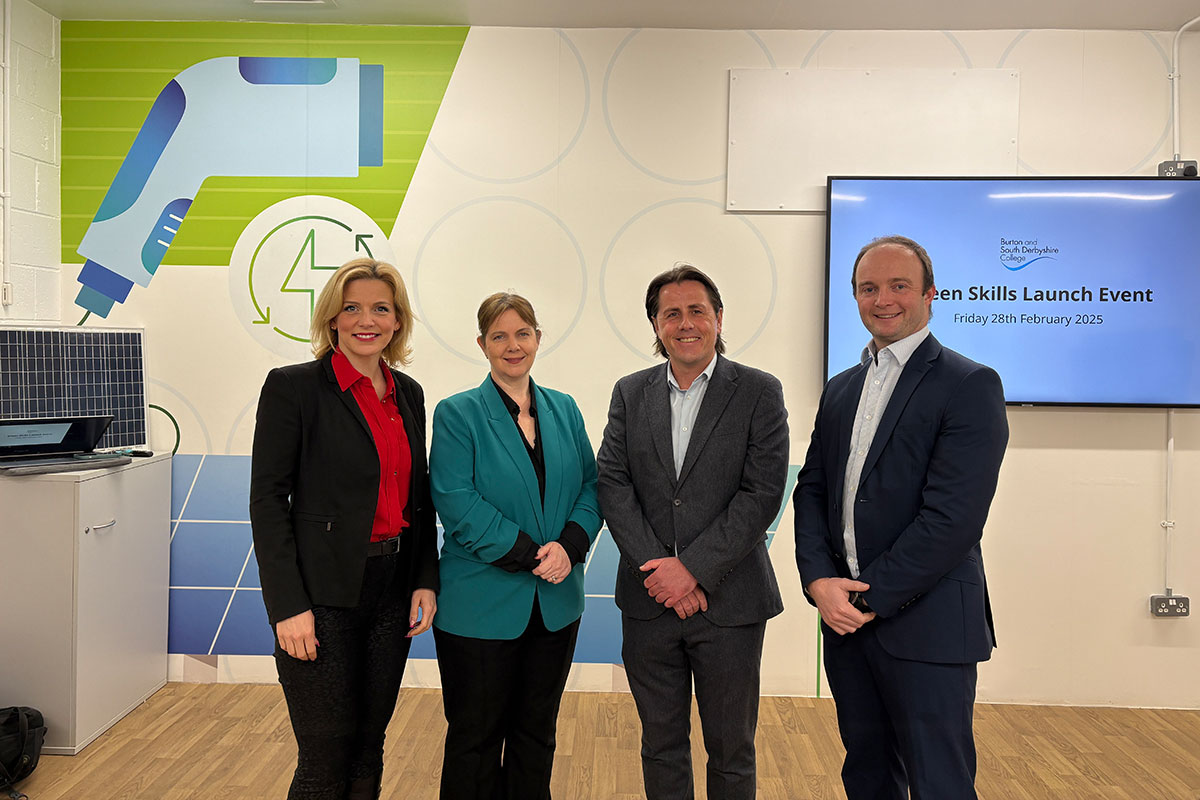National Skills Fund
Overview
The government is investing £2.5 billion in the National Skills Fund. The National Skills Fund will help adults to train and gain the valuable skills they need to improve their job prospects. It will support the immediate economic recovery and future skills needs by boosting the supply of skills that employers require.
On top of the £375 million investment in the financial year 2021 to 2022, the government is investing £1.6 billion through the National Skills Fund in the next 3 years. This includes extending the eligibility for free level 3 qualifications to more adults and further expanding Skills Bootcamps, which have the potential to transform the skills landscape for adults and employers.
The consultation on the future of the National Skills Fund, which ran from 15 July to 17 September 2021, has now closed. We will carefully consider and evaluate responses to the consultation and publish a response in due course.
Free level 3 qualifications for adults
Any adult aged 19 and over, who does not already have a level 3 qualification (equivalent to an advanced technical certificate or diploma, or A levels) or higher, can access hundreds of fully funded level 3 courses.
In addition, from April 2022, any adult in England earning under the National Living Wage will also be able to access these qualifications for free, regardless of their prior qualification level.
This offer is part of the government’s long-term commitment to help everyone gain skills for life. Courses are available in a variety of lengths, to support adults to get the skills they need to boost their careers. Learners may be able to get help to pay for childcare, travel and other costs.
All 19 to 23 year olds can also access additional courses for free through their legal entitlement to a first full level 3 qualification.
Sector subject areas and courses available
The qualifications have been identified to help adults improve their job prospects. They have good wage outcomes and can address skills needs in the economy, delivering a wide range of skills in many jobs and sectors.
See the list of qualifications included in the offer for more information. You can also find them by using the ‘qualifications offer’ filter in the qualifications search service.
Qualifications are currently available in:
accounting and finance
agriculture
building and construction
business management
childcare and early years
digital
engineering
environmental conservation
health and social care
horticulture and forestry
hospitality and catering
manufacturing technologies
mathematics and statistics
medicine and dentistry
public services
science
teaching and lecturing
transportation operations and maintenance
warehousing and distribution
We will keep the qualifications list and sector-subject areas in scope under review to ensure this offer responds to changing labour market needs.
Awarding organisations, Mayoral Combined Authorities and the Greater London Authority can suggest additions to the list through the qualifications funding approval process if they meet the criteria.
Funding arrangements for providers
Funding for the free level 3 qualifications will be routed via Mayoral Combined Authorities and the Greater London Authority for residents in those areas of England.
Funding for the free level 3 qualifications for residents in all other areas of England will be routed via the adult education budget and administered by the Education and Skills Funding Agency (ESFA).
More information on funding for free level 3 qualifications for 2021 to 2022 is available in:
Funding uplift
The government has provided an uplift for each qualification delivered as part of this offer, to support providers to scale up the delivery of level 3 provision for adults. The following uplifts have been applied to the funding rates for all qualifications included in this offer:
£600 per-qualification uplift for qualifications of 360 guided learning hours or above
£150 per-qualification uplift for qualifications of 359 guided learning hours or below
Growth of provision
We want to enable providers to deliver these qualifications for adults, even if there is a higher demand than expected. There is additional funding available to support growth of this provision.
For providers funded by ESFA, we will fund delivery up to 110% at the end of the 2021 to 2022 funding year. In addition, at the December review point, we will use the information provided to increase provider allocations, in line with the performance management rules set out in section 4 of the AEB funding rules 2021 to 2022.
Grant-funded ESFA providers without a National Skills Fund allocation, or with a National Skills Fund contract value of less than £45,000, providers can make a ‘first time request’ for an allocation, or to increase to £45,000.
Any funding increase will be subject to affordability.
Funding has been allocated to MCAs and GLA at a level which will support significant growth of provision within the offer.
Short courses
Eligible learners are able to take one short qualification (identified by category code 49) without exhausting their eligibility. We expect this flexibility to be used where a learner could benefit from a more substantial qualification once they have completed a short qualification.
Course materials for providers
Jisc have published a detailed reading list for organisations delivering level 3 adult courses as part of the Lifetime Skills Guarantee.
Skills Bootcamps
Skills Bootcamps offer free, flexible courses of up to 16 weeks for adults aged 19 or over and who are either in work, self-employed, recently unemployed or returning to work after a break. Some Skills Bootcamps have additional eligibility criteria. They give people the opportunity to build up sector-specific skills and fast-track to an interview with a local employer.
Training available
Skills Bootcamps are developed in partnership with employers, colleges, training providers and local authorities, to help people develop the skills that are in demand in their local area and get a better job. They are available in regions across England and include a range of digital courses such as digital marketing and coding, technical training in skills like construction or logistics, and green skills like solar energy.
A list of Skills Bootcamps is available. This list will grow as more Skills Bootcamps become available. We anticipate a high demand for places and continuous evaluation of the programme will inform any further expansion.
Eligibility
The courses are open to adults aged 19 and over who are either in work, self-employed, recently unemployed or returning to work after a break.
Some Skills Bootcamps may have additional eligibility criteria.
Ofsted’s role in Skills Bootcamps
Quality assurance is critical to ensure that Skills Bootcamps meet the needs of learners, employers and the economy. Across the 2021 to 2022 and 2022 to 2023 financial years, Ofsted inspectors will visit a sample of Skills Bootcamps providers to carry out a review of provision, applying the education inspection framework methodology to identify strengths and areas for improvement.
This will provide an independent overview of the quality of the training delivered through the Skills Bootcamps.
The role of Ofsted will continue alongside any expansion of the Skills Bootcamps programme in future years. More information is available on the Ofsted website.
Information is also available for:
people interested in taking one of these free courses for jobs
employers about this offer and other support available through the Plan for Jobs
Adults who claim Universal Credit can apply for one of these free courses provided it will improve their chances of securing work. The length of full-time training that many Universal Credit claimants can take to support their search for work has been extended from 8 weeks to 12 weeks, and up to 16 weeks for a full-time Skills Bootcamp in England. This extension will run until the end of April 2022, and the impact of this change will continue to be reviewed.











Responses